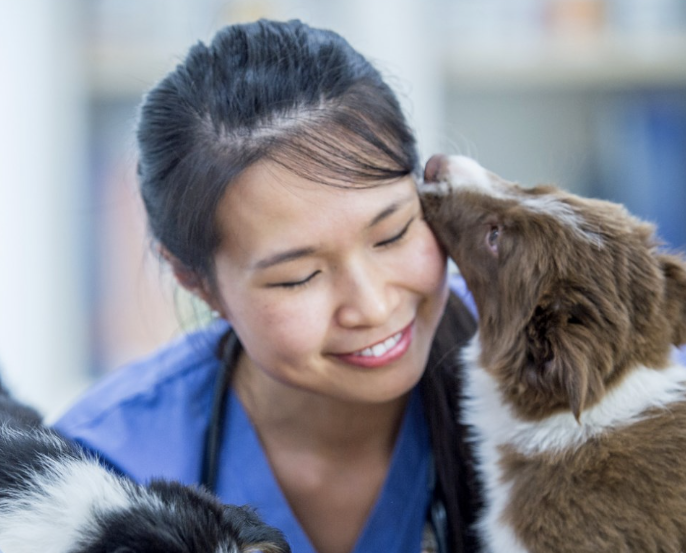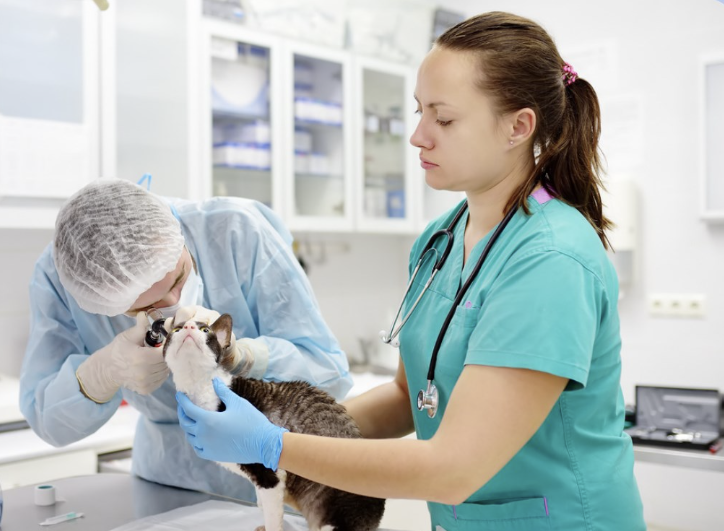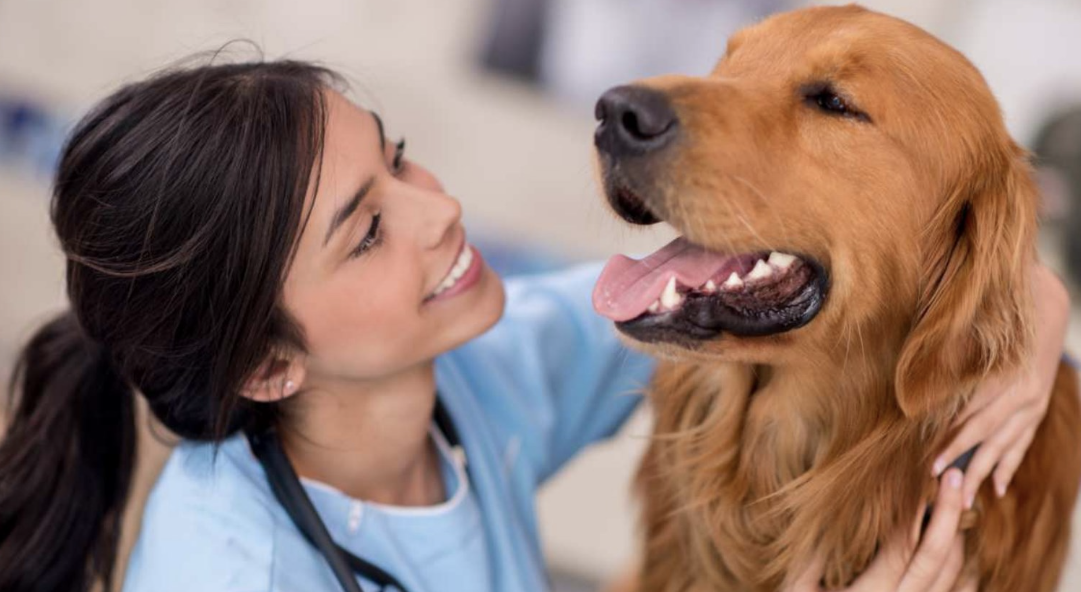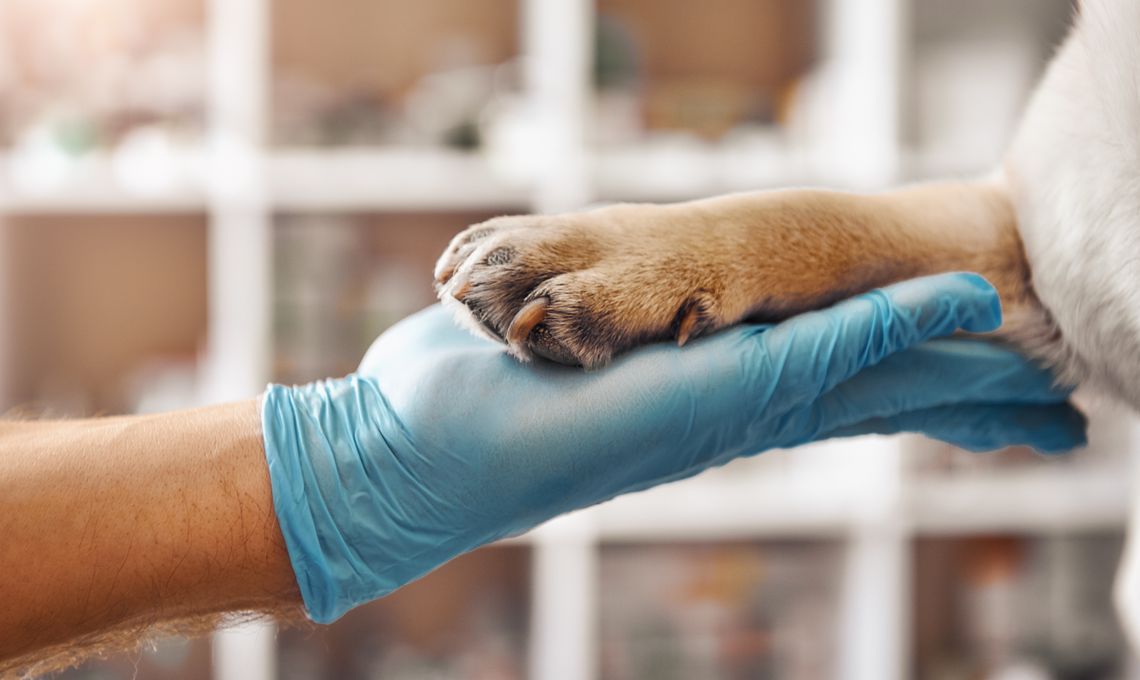Everyone knows a dog is man’s best friend. Did you also know that today almost everyone owns a pet? According to the latest report on pet ownership statistics, at least 85 million families in the United States have a dog or a cat and 90% of them consider them to be a member of their family. That’s great news, especially with mental health professionals finding that pet ownership has mental and physical benefits.
 Lately, a lot of attention has been given to the pressures of first responders and nurses, but what about the staff at veterinary clinics where stress levels are also high? Veterinary medicine is filled with long work hours and people who are compassionate about the challenges of treating patients who cannot vocalize their ailments. These professionals continue problem-solving their way through emotional and difficult cases with the additional challenge of people treating their pets like children.
Lately, a lot of attention has been given to the pressures of first responders and nurses, but what about the staff at veterinary clinics where stress levels are also high? Veterinary medicine is filled with long work hours and people who are compassionate about the challenges of treating patients who cannot vocalize their ailments. These professionals continue problem-solving their way through emotional and difficult cases with the additional challenge of people treating their pets like children.
Additionally, when end-of-life decisions must be made, it can be incredibly draining and devastating, not only for the family but for the veterinary staff as well. In a profession where staff spends all day caring for others, it has become more important than ever to commit to self-care and have a plan for mental and physical health.
If you are a veterinary professional, here are key steps you can take to improve your mental well-being:
1. Assess your well-being. Take the free Professional Quality of Life Assessment test to measure your current balance of negative and positive experiences. Use these results for creating a self-care plan and find the areas where you need to put more time and energy. Here’s a link to the test: https://proqol.org/proqol-measure
2. Focus on a healthy and supportive workplace environment. Take breaks throughout the day to help reduce fatigue. Step outside for a few minutes when feeling overwhelmed. It may also be time to plan a vacation. This will not only boost your productivity but will also increase job satisfaction and improve the quality of patient care.
3. Debrief often, especially after a stressful situation. Have a staff meeting emphasizing the strength of every employee. Build self-confidence and share ideas for performing better in the future.
4. Take ownership of your mental well-being. Sign-up for webinars and training, as well as in-person events where you can learn about how to make health-centered decisions at work as well as at home.
5. Know the risks. Learn the risk factors for compassion fatigue, depression and burnout. Train yourself to watch for the symptoms of these mental disorders, and what to do to combat them.
6. Learn when to ask for help. The most important part of your well-being is knowing that you need to reach out to others for assistance and then do it. No one is capable of handling everything alone. If you think that you are in a crisis, reach out immediately to the local helpline center.
 Veterinary Mental Health Initiative (VMHI) was founded in 2021 because veterinarians and veterinary technicians are currently an underserved population with regard to mental health care and support.
Veterinary Mental Health Initiative (VMHI) was founded in 2021 because veterinarians and veterinary technicians are currently an underserved population with regard to mental health care and support.
The first program in the United States to specifically address the mental health crisis in the veterinary profession, VMHI provides free, multi-level emotional support to veterinarians and their clinical staff, facilitated by expert clinicians, via Zoom. Because veterinary professionals can struggle with high rates of anxiety, depression, and suicidality, in addition to other mental health diagnoses, there are designated groups for veterinarians, veterinary techs, and veterinary support staff.
The reasoning behind the segregated groups is that research found that veterinarians wanted to talk to other veterinarians. Techs wanted to talk to other techs and support staff wanted to talk to other support staff. These are all peer support groups and not actual therapy sessions because “it’s therapeutic to talk to another person who’s going through the same thing you’re going through,” according to participants.
The most recent data (from 2019) states that the suicide rate is higher among veterinarians than the general population — 1.6 times higher for male veterinarians and 2.4 times higher for female veterinarians. Veterinary technicians and technologists also have a higher suicide rate than the general population — 5.0 times more likely for males and 2.3 times more likely for females.
The “new normal” has become the verbiage of the world after COVID-19 when the world irrevocably changed, and uncertainty became exceptionally difficult to deal with. We all must learn to adapt to the new normal, not just in our workplace but also in our personal lives. Just remember, it’s okay not to be okay, and always trust when you need to reach out for help. If you are one of the fortunate few who can deal with current circumstances on your own, remember to check in on colleagues.
Among the difficulties veterinary professionals face, there are also rewards in those are the memories to hang onto. Remember the patients who came in sick, were taken care of and were able to go back home, happier and healthier. The veterinary profession needs all of us to help patients and advocate not only for them but also for each other.

If you are a pet owner, remember to say “Thank You” to your Veterinarian and Staff. These two words are powerful and make a lasting impact because they leave the receiver feeling valued and appreciated. Here are more ideas:
1. Write a thank you card. Include a photo of your pet on the front and a handwritten note inside letting the staff know how much they are appreciated.
2. Go to social media. Post photos of your veterinary staff (with their permission) assisting your pet and make them the star of your social network. Share heartwarming stories of visits to the clinic, surgical recoveries, or just annual check-ups.
3. Honor the staff with a seasonal basket. It can be Thanksgiving or Christmas, or just a random day in the summer but fill it with themed items, candy, and gifts for everyone!
4. Give a gift. You can give enough for all the staff or just to the one specific person who helped you the most. It could be a complimentary product or service, a basket of cookies or candy, hot apple cider, or a gift card to their favorite restaurant!
5. Support a charity in honor of clinic staff. Find out what charities staff members support and make a donation in the name of the clinic. This is an impactful way to show staff how much you appreciate them while supporting the community. It could be to a local animal shelter, Habitat for Humanity, or any other local charity.
6. Write a review on social media. This can include platforms such as Facebook, Google, Yelp, Yext, and any other review site to let others know about the exceptional customer service at your veterinary clinic.
7. Surprise the staff with lunch. Because clinics are so busy, many work through lunch hours. Pick up lunch from their favorite restaurant and surprise them with sandwiches, cookies, or whatever makes them feel appreciated.
There is awesome power and positive impact from even the smallest kind word or deed, and you may never know how much impact it has on someone’s day or life. Remember to let those around you experience the beauty in your simple kindness, especially at your veterinary clinic.




Comment
Comments